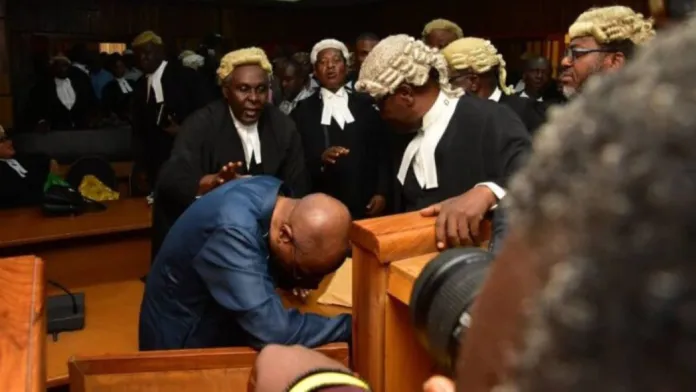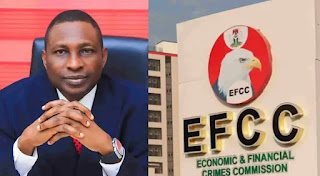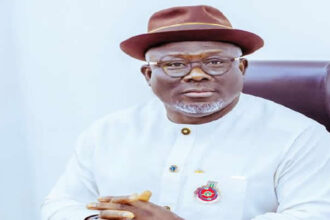...To get all news updates, Join our WhatsApp Group (Click Here)
Also Join our WhatsApp Channel (Click Here)
One of the investigators handling the case of $6,230,000 allegedly stolen from the Central Bank of Nigeria (CBN) on February 8, 2023, has revealed what Godwin Emefiele, immediate past governor of the apex bank, told them at Kuje prison.
The former CBN governor, who is standing trial on an alleged 20-count amended charge, preferred against him by the Economic and Financial Crimes Commission (EFCC), was once remanded at Kuje prison.
He was alleged to have engaged in criminal breach of trust, forgery, conspiracy to obtain by false pretence and obtaining money by false pretence when he served as central bank chief.
In an affidavit filed before a Federal High Court in Abuja, one of the investigators, a Deputy Superintendent of Police, gave details of investigators’ findings and progress made so far.
The Deputy Superintendent of Police was quoted to have said: “We visited Kuje Correctional Centre, where we interviewed Godwin Emefiele, who purportedly approved the memos authorising the payment, as then CBN gov and he denied seeing, talk less of approving such memos.
“We also arrested some concerned staff of the Central Bank of Nigeria, who denied any involvement in the crime, before we finally arrested Bashirudeen Maishanu, who corroborated the account of Abdulmajeed Muhammad and further confessed to have been involved in the crime which, according to him was perpetrated by himself and the first to third defendants/respondents – Adamu Abubakar, Imam Abubakar and Odoh Eric Ocheme.
“Bashiru Maishanu further confessed that himself, the first and second defendants/respondents (Adamu Abubakar and Imam Abubakar) shared the sum of $2,500,000.00 from the stolen money, while the third defendant/respondent (Odoh Eric Ocheme), being a fellow staff of the Central Bank of Nigeria, kept the balance of $3,730,000.00 claiming that he had other interests to settle in the CBN.
“Bashirudeen Maishanu further confessed that both himself, and the first and second defendants/respondents jointly invested the United States dollars equivalent of the sum of N1, 440,000,000.00 into real estate business of Afrolyk Global Ltd.
“The Managing Director of the said Afrolyk Ltd, Aminu Lawal has been arrested and he confirmed the investment by Bashirudeen Maishanu, Adamu Abubakar and Imam Abubakar, and already refunded the sum of $200 000 00 to the Special Investigator’s team as part of the money he (Aminu Lawal) received as part of the purported investment.
“Cash of about $400,000 00 has also been voluntarily returned by Bashiru Maishanu from part of his remaining share of the money in question. The money (the $6,230,000) was received in cash from the Central Bank at Nigeria and also shared in the same cash by the defendants/respondents and others, making it difficult to trace the monies without arresting the defendants/respondents.
“It was later revealed that the third defendant – Odoh Eric Ocheme – was the Personal Assistant to Godwin Emefiele as the CBN governor while the first and second defendants (Adamu Abubakar and Imam Abubakar) are businessmen and associates of Bashirudeen Maishanu.”
You can get every of our news as soon as they drop on WhatsApp ...To get all news updates, Join our WhatsApp Group (Click Here)
Also Join our WhatsApp Channel (Click Here)












